Check out some books by your tutor Fiona Veitch Smith … (click on the book covers to find out more)
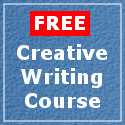 Hello everyone, welcome to the first session of our free online creative writing course. Over the next eight sessions we will be looking at different aspects of creative writing and trying our hand at various forms. I’d strongly encourage you to have a go at the exercises along the way, and please feel free to leave comments or ask questions at the end. If you have arrived on this page without first reading the home page and frequently asked questions page (on tab above) please go back and do so now. If you have read them, enjoy the course!
Hello everyone, welcome to the first session of our free online creative writing course. Over the next eight sessions we will be looking at different aspects of creative writing and trying our hand at various forms. I’d strongly encourage you to have a go at the exercises along the way, and please feel free to leave comments or ask questions at the end. If you have arrived on this page without first reading the home page and frequently asked questions page (on tab above) please go back and do so now. If you have read them, enjoy the course!
Creativity and Art
What is creativity? The Collins dictionary defines it as ‘the ability to cause something to exist’. Without getting into too much of an existential discussion, I would say that with every thought that is expressed, something has been created. It was Descartes who said: ‘I think, therefore I am’; well I would add, ‘I think, therefore I create’ (do you feel a God complex coming on?). But how do we express our thoughts? Sometimes we do it verbally, other times by body language and still again through what is loosely termed ‘art’.
Art takes place when a thought is expressed and fixed in a way that other people may experience it on an aesthetic level – through music, writing, painting, sculpture, choreography and so on. Many artists say that their best work takes place when they ‘by-pass’ the thought and simply express the feeling. This may be true, but for writers, who use a verbal medium, a feeling must first be converted into a thought before it can be put into words. Don’t over analyse the thought before you express it, as this way you can ‘channel’ the purest interpretation of the feeling, but some cognitive process needs to take place. Some writers prefer to mull over a thought and give it form before they put pen to paper – I’m one of them – but it’s good practice to try and switch off the ‘editor’ at least for the first draft. First response trigger exercises are useful in this regard and can release some unexpected words and images.
Exercise 1:
Write down your first response to these words or phrases:
- Blue ball
- And that’s when the sadness came
- Coffee
The first task of a good writer is to convert feelings into thoughts and then into words. This is the raw material that can then be converted into something more permanent. Some writers refuse to toy with their first drafts, believing their creativity will be diluted; I disagree. Allowing your critical mind to improve a piece of writing is where the craftsman meets the artist. Something produced only by the former will lack soul and something by the latter will lack form. Good writing is a combination of art and craft.
For public consumption
Art, of course, is highly subjective and one woman’s masterpiece is another woman’s unmade bed. We all have the ability to create, but whether or not our creation is ‘art’ must be left to the eye or ear of the beholder.
In this session we will look at how you can craft those creative thoughts into creative writing to share with other people. And that’s what sets ‘public’ writing apart from ‘private’ scribblings – there’s a perceived readership in mind. When I ramble on in my journal, I am the only one who will read it (hopefully!) so my only concern is getting my thoughts down on paper. The moment I want someone else to read it I begin to consider ways to improve the presentation and craft it into something more aesthetically pleasing. I consider which words may sound more colourful, whether or not my sentence structure is grammatically correct, whether I’m using evocative imagery, and so on.
Story, feeling or image?
What is it about those creative thoughts that you think might be of interest to other people? Do they speak of an eternal truth or a common experience? Do they make you laugh or cry? Do they suggest a story that will entertain or a poem that captures a moment that must be shared?
Exercise 2: In 50 words or less write down why you want to write then list three creative thoughts that you’ve had lately (each 10 words or less). These may be an image, a musing, a ‘truth’, a story, or so on. If you haven’t had any, take yourself for a walk and look around; what grabs your imagination? Browse through a newspaper or a magazine; do any stories or pictures catch your attention? Think back over your day; did anything funny, charming, shocking or unusual happen to you or someone you know?
Poetry or prose?
Some people are more suited to writing poetry than prose and some people do well at both. Although we won’t be discussing it in this course, other people are more suited to script. I’m one of them. I’ve had relative success as a prose writer and in fact have managed to earn a living from it, but it’s taken years of hard work to get to this point. I recently branched out into scriptwriting and found that I had much more of a natural ability. (If you’re interested in finding out more about scriptwriting, check out getting started in playwrighting). You may find that you’ve been trying to make it as a poet when actually you’re more suited to prose. Now I don’t want to pigeonhole anyone, but ask yourself the following questions:
- Are you more attracted to films than stills?
- Do you enjoy telling people ‘stories’ from your life?
- Do you prefer to read stories or poems?
If yes, to these, then you may be more suited to prose than poetry. If no, then the opposite may be true. If it’s ‘sometimes yes, sometimes no’ then perhaps you are suited to both. We shall be looking at how to write poems in more detail in session 7, but suffice to say, a poem is like a snapshot of a moment. If you can’t rest until you know what happened before and after, then prose may be your genre.
Exercise 3: Take one of the three creative thoughts you wrote down in Exercise 2, then list 20 separate words that communicate or describe that thought. Do not, at this stage, link the words into sentences. Once you have your 20 words use them in a poem of 16 lines or less. Then, take the same 20 words and work them into a short story of under 300 words. Which exercise came more easily? Which form has best communicated your creative thought?
Further Resources:
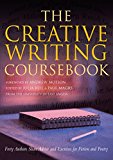
There are some excellent resources out there for creative writers. To get quick ‘starter’ images when your own well is dry I recommend The Writer’s Block by Jason Rekulak. I’m currently working through The Creative Writing Coursebook by Julia Bell and Paul Magrs and finding it very useful.
The next creative writing course session is how to write a short story. But before you move on to that, please feel free to leave a comment or ask a question in the box below.
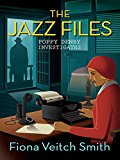
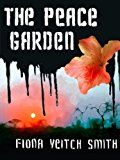
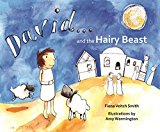
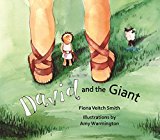
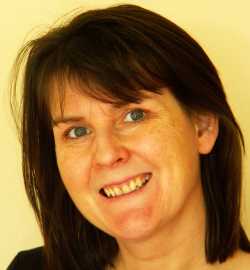 Welcome to The Crafty Writer's free online creative writing course, presented by Fiona Veitch Smith, a freelance journalist, editor, author, playwright, screenwriter and writing teacher. I hope that you'll see a dramatic improvement in the quality of your writing as you work through this course.
Welcome to The Crafty Writer's free online creative writing course, presented by Fiona Veitch Smith, a freelance journalist, editor, author, playwright, screenwriter and writing teacher. I hope that you'll see a dramatic improvement in the quality of your writing as you work through this course.
Hey! Thank you so much for this creative writing course. I am using it right now, and I’m only on the first lesson, but I still like it. Thanks for helping me get the creative juices flowing
Thank you very much for the free course. Poem and short story were equal in difficulty and communicating creative thought. I’m on to how to write a short story. Thanks again.
I feel like exercise 3 was a little challenging for me because it’s been a while since I’ve wrote anything, and the poem was a little difficult because I forgot how to write one. This may be because I may be better suited for short stories than poems, but I feel like maybe if you highlighted some characteristic of both before telling the reader to do them, it may help. Or tell them to come up with the list of words and then have them re-visit that list after learning more about writing short stories and poetry. Other than that, thanks for this free website. I am excited to start writing, and this is definitely going to point me in the right direction, again thanks!
I find all you said very intereting
interesting
Gday. I am really interested in geting started in writing. I love reading and the idea of making my own story is just amazing. Is there a way you could email me all the lessons or classes as i work 85 hours a week… Also would youi be able to check my work. Cheers
Jake.
Hi Jake. Glad you’re keen to get writing and I hope you enjoy the course. But this is all there is. I can’t email it to you; I can’t check your work. I also have a very busy job (actually 3 jobs).
Dear Fiona,
This starter exercise is excellent to get people to open up and tap into their creativity. I particularly liked the subtle pointers of looking around us in a new way, of listening for emotive stories and paying attention at what catches our fancy. It will help any writer, new or established, to look at their life in a different, creative way and find inspiration everywhere.
With thanks, Ilona
Success!
I didn’t realize I could write poetry!! Most interesting course.
I enjoyed the first lesson in your course very much.
awesome
Thank you for creating these courses. They are amazing! They are helping with my writing career!
Thank you so much for providing this information!! I hope to improve my creative writing with your help!!
I had been looking online for something or anything to help me put my over active imagination into words. I am so glad I came across this coursee and cant wait to do the next session. I found i can eaisy express myself in poems and short stories. Thanks so much for this course!
This course is interesting. And it is helping me a lot.
An enlightening and enjoyable first lesson. I am looking forward to the rest of the course.
Thank you
Lainey
Exercise 3 was especially helpful to me in unlocking my creativity. Using the list of 20 words I had come up with really helped me to sit down and allow other words to flow and connect them all together. It is definitely a tool I plan to use in the future when I find I am stuck on one of my writing projects.
Glad it helped, Bethany.
This is an area which I would like to put into practice, and learn some techniques on writing especially short stories. Looking forward to the challenge. Maridel
Thank you for this free course. I really appreciate all the time and effort you put into it knowing you would not get anything monetary back. Blessings.
I am starting this course from today. Just wanted to thank you for putting this together.
I’ve had ideas or pictures that would make a good story but nothing comes to me. Would it be a good idea to just make a list of what made the picture interesting to me, and use that as a jumping off point later?
Hello Felicia, yes definitely jot down your ideas. I often have words or phrases that come to me but I don’t know what to do with them immediately. Let them stew for a while. Something may emerge later.